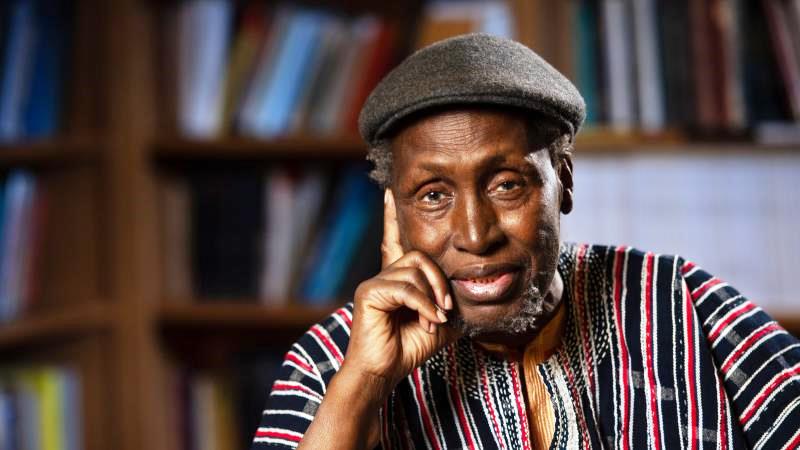Kenya and the world are mourning the loss of one of Africa’s greatest literary icons. Renowned writer, scholar, and political thinker Ngũgĩ wa Thiong’o passed away this Wednesday morning, May 28, 2025, at the age of 87.
His family announced the news in a statement: “It is with a heavy heart that we announce the passing of our dad, Ngūgi wa Thiong’o, this Wednesday morning, 28th May 2025. He lived a full life and fought a good fight. As was his last wish, let’s celebrate his life and his work. Ría ratha na ría thūa. Tūrì aira!”
The phrase in Gikuyu, “Ría ratha na ría thūa. Tūrì aira!” loosely translates to “The laughter and the tears—we are the heirs.” It captures the enduring impact Ngũgĩ leaves behind through his children, his readers, and his life’s work.
Family spokesperson Nducu wa Ngugi is expected to release details on the celebration of life in the coming days. His children—Njoki wa Ngugi, Ngina Kiarie, Tee Ngugi, Kay Ngugi, and Björn—are among those carrying forward his powerful legacy of storytelling, justice, and cultural pride.
READ ALSO:
Young soul gone: How teacher’s alleged dismissal of student’s collapse led to death
The family said that the acclaimed writer had been struggling with health issues, including kidney problems and limited mobility, in his later years.
Born James Ngugi in 1938 in Kamirithu village, Limuru, Ngũgĩ lived through British colonial rule, the Mau Mau resistance, and Kenya’s independence—a turbulent history that shaped his writings and activism.
He rose to prominence in the 1960s with novels like Weep Not, Child (1964), the first English-language novel by an East African writer. The River Between (1965) and A Grain of Wheat (1967) soon followed, probing the moral and political dilemmas of a nation in transition.
In the 1970s, he took a bold turn. Co-writing and staging Ngaahika Ndeenda (I Will Marry When I Want) in Gikuyu, he openly criticised social injustice. The play’s popularity among ordinary Kenyans drew the wrath of authorities, and Ngũgĩ was detained without trial in 1977. While in prison, he famously wrote “Devil on the Cross” (1980) on toilet paper, marking his firm decision to write only in Gikuyu as a way to reclaim his African identity.
Exiled for decades, he lived and taught abroad, including at Yale and the University of California, Irvine. In works such as Decolonising the Mind (1986), Matigari (1987), and his memoirs, Dreams in a Time of War (2010) and In the House of the Interpreter (2012), Ngũgĩ remained a relentless voice for language justice, pan-Africanism, and postcolonial liberation.
Ngũgĩ wa Thiong’o’s influence stretched far beyond literature. He championed linguistic decolonisation, called out cultural imperialism, and inspired generations of African writers, thinkers, and activists.
By Joseph Mambli
You can also follow our social media pages on Twitter: Education News KE and Facebook: Education News Newspaper for timely updates.
>>> Click here to stay up-to-date with trending regional stories
>>> Click here to read more informed opinions on the country’s education landscape






